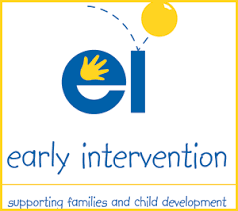Imagine…(or take a walk down Memory Lane) you are a new parent, with a beautiful, healthy, baby. Everyone has congratulated you and welcomed your new bundle of joy. Your precious little miracle is cuddling in your arms, and you can’t wait until you begin to see all of your baby’s “firsts” in development. Their first smile, the first time they rolled over and sat up, their first steps, and what their first word is going to be. Your exciting journey of parenting has begun!
As your baby develops, you naturally are anticipating these “firsts” and probably checking in on the baby milestones, as to what you should be seeing in your baby’s development at each month or so. Granted, all kids develop at different times, but as the months go on, you begin to  doubt if your baby is hitting their milestones “on time”. Your baby’s muscles just aren’t as wobbly when they’re upset, they’re not rolling over, crawling, or sitting up during the typical stages of development. You could even notice that your baby doesn’t cry as often as some babies do. Your baby could even be hitting their milestones within the average time, but is hardly making any sounds at all when you begin to think about it. This is when you begin to think something’s just not quite right. Naturally, you are concerned about if your baby is developing as they should, and you begin to compare your child with others’ babies.
doubt if your baby is hitting their milestones “on time”. Your baby’s muscles just aren’t as wobbly when they’re upset, they’re not rolling over, crawling, or sitting up during the typical stages of development. You could even notice that your baby doesn’t cry as often as some babies do. Your baby could even be hitting their milestones within the average time, but is hardly making any sounds at all when you begin to think about it. This is when you begin to think something’s just not quite right. Naturally, you are concerned about if your baby is developing as they should, and you begin to compare your child with others’ babies.
Most people will tell you not to worry, remind you that all babies develop at different times, try to comfort you, and/or may think you’re suffering from severe insomnia. They may even say, “you must be really stressed and just need a little more help”. As your baby becomes a toddler, you’re still noticing he or she is not making their developmental stages in some areas. You’re afraid to push things, as you may want to just “let them be a kid”. So during your regular checkup with the doctor, you present your concerns. Throughout your discussions, the doctor may suggest getting an evaluation from Early Intervention.
 What if your child is making their developmental milestones, but at the later end of the range that most babies and toddlers do? Technically, your child could just be a “late developer”, right? What if there’s a family history of “late developers”? Bottom line, you are downright confused, stressed, and don’t know what to do, or even if you should do anything at all. Where’s the ‘road map’ for this?
What if your child is making their developmental milestones, but at the later end of the range that most babies and toddlers do? Technically, your child could just be a “late developer”, right? What if there’s a family history of “late developers”? Bottom line, you are downright confused, stressed, and don’t know what to do, or even if you should do anything at all. Where’s the ‘road map’ for this?
Follow your heart.
Take action on your suspicions. Only YOU know your child best. The first sign you think something isn’t quite how it should be, is when something needs to be done. This is when you call the pediatrician, and ask them for a referral for an evaluation. What the worst thing that can happen?-that your child is developing appropriately and there’s no need for concern? I’d rather be safe than sorry (or miss out on something) myself.
What is Early Intervention?
The PA Dept. of Education describes early intervention as, “…program provides support and services to families with children, from birth to age five, with developmental delays and disabilities. Early Intervention builds upon the natural learning opportunities that occur within the daily routines of a child and their family.” Their website also has valuable resources for how to obtain these services and the steps you can take to get these services.
Now what?
After calling around and making arrangements, the evaluation team most likely will come to your house, and do their series of tests (Although to your child, it’s play time with visitors!) as well as ask you questions about their development. The team will take several minutes to tally up their scores from the tests while you’re probably going to be giving your little one a snack. The team will inform you how your child scored and either tell you that your child is fine, or let you know that he or she has a delay somewhere. They will recommend services for your child. This is where your journey begins. A services coordinator will sit down with you at another appointment to decide on goals you’d like to have for your child in their Individual Family Services Plan (IFSP), which the therapists will base their work upon.
Take immediate action
Although as hard as that may be to hear (and it can be a very hard, difficult reality to fully accept, as your thoughts are now validated), you must make contact with a variety of therapy providers to arrange times for them to come to your home or daycare setting. Early Intervention is a free service, however, most families are only allotted a certain amount of time for these services, and your child may need more. Get as much help as you can as early as possible. Research shows it’s better to work with a child when they are younger, so that they can learn the needed skills while they are still developing. The first 5 years are the most crucial to your child’s life.
Where can I find these services?
Fortunately for you, our “Directory” list on this website has lists of various providers, therapists, daycares, preschools, national societies for various disorders, and specialists to see, all nicely grouped together. Take advantage of this! This was created for families like you so that you don’t have to go searching around (i.e., “Googling it”) for what your child needs. Many families may not know what is available for them nor what does exist. Asking around is very helpful too. Be sure to start seeking out developmental specialists or special pediatricians to evaluate your child as soon as possible. Your primary pediatrician can write a referral to see a specialist. These specialists usually have a very long waiting list (literally, several months to a year) just to be seen for an initial evaluation, which is why you need to contact them promptly. The specialist will further evaluate your child, and give you more detailed information regarding their development and give recommendations.
Got Insurance?
Among everything else you’re arranging (yes, it is natural if you feel like you want to pull your hair out at this point!), you will need to obtain insurance for these services. One thing you will hear quite frequently is, “Who is your provider?”. Some places accept Medical Assistance however, some places do not. When applying for Medical Assistance (“MA”), you can choose from a list of their participating insurance network providers. You will be given paperwork on information about each of them, and pick whichever plan works best for you. You will always need to check with your insurance providers to see which and how much of the services they cover, especially if you wish to have additional therapies/services for your child (also will be known as “private therapy”). I will strongly suggest taking breaks while deciding on insurances…this can be very overwhelming! I remember drawing a Venn diagram trying to explain all of this (who covers what, and how much, etc.) to my spouse!
Once you have all of the insurances taken care of, all therapies (if needed) for your child set in place, you can take a little break knowing that your child is on the road to get where they need to be for their development. Keep in mind, this is a process. Results vary. It may take time (months) to get everything together. When your child reaches the age of 3, they will be referred to the Intermediate Unit where your child’s services will continue from thereon, until he or she reaches school-age.
I wanted to also include this quote I found, which is so true, and can speak for the perspective of our kids, “I’m lucky to be part of a team who help to make me look good, and they deserve as much of the credit for my success as I do for the hard work we have all put in on the training ground.” -Lionel Messi

